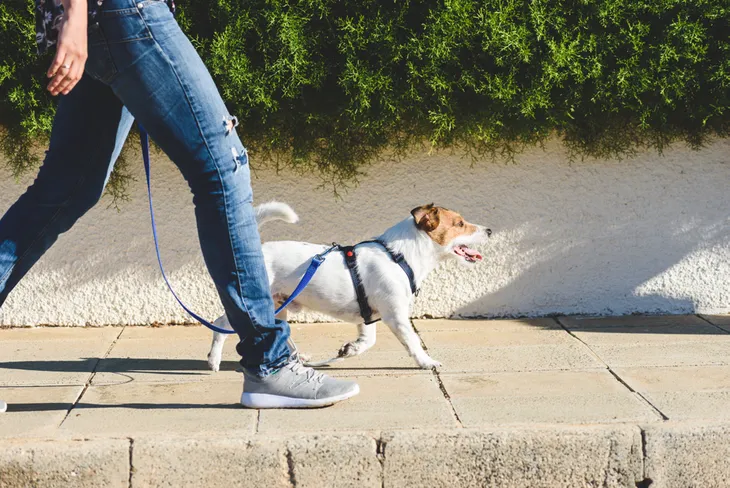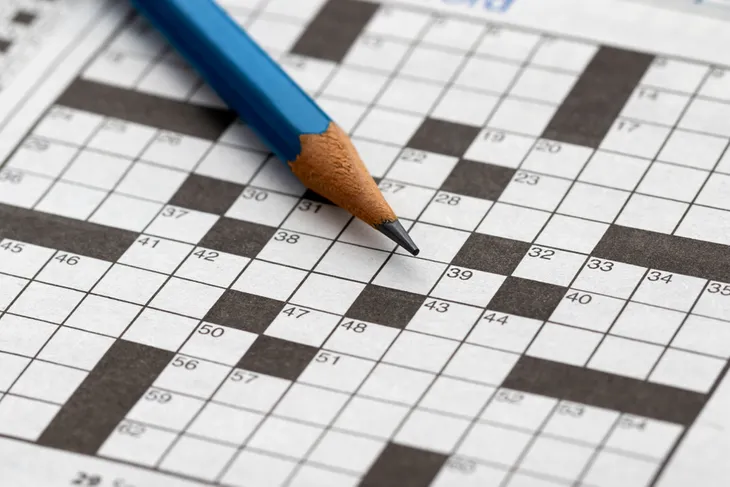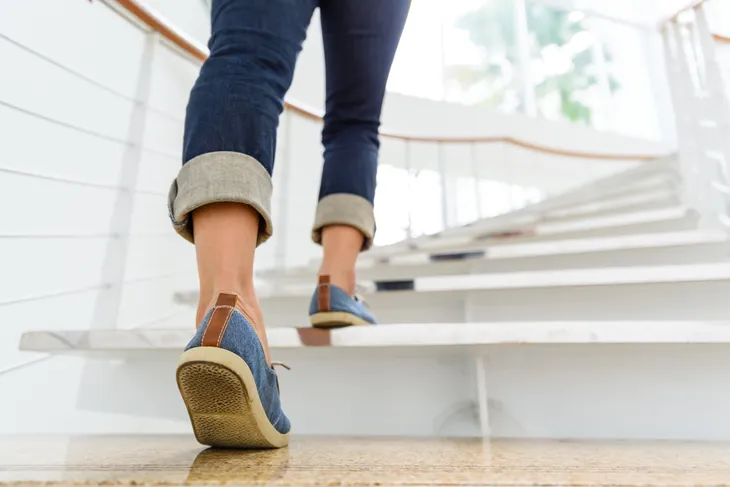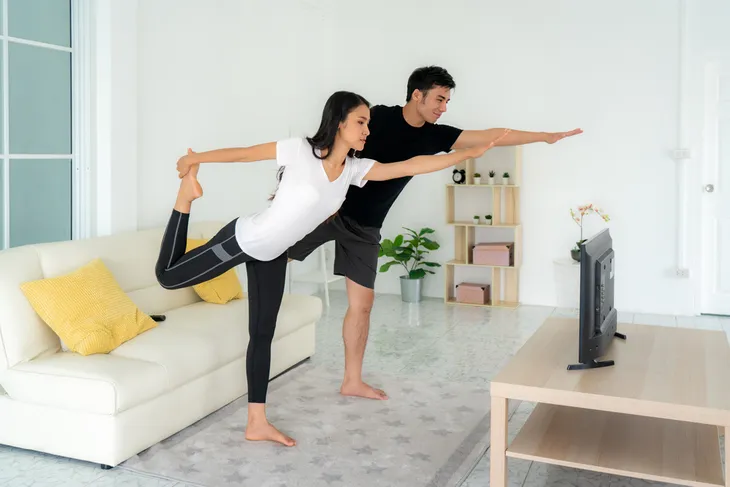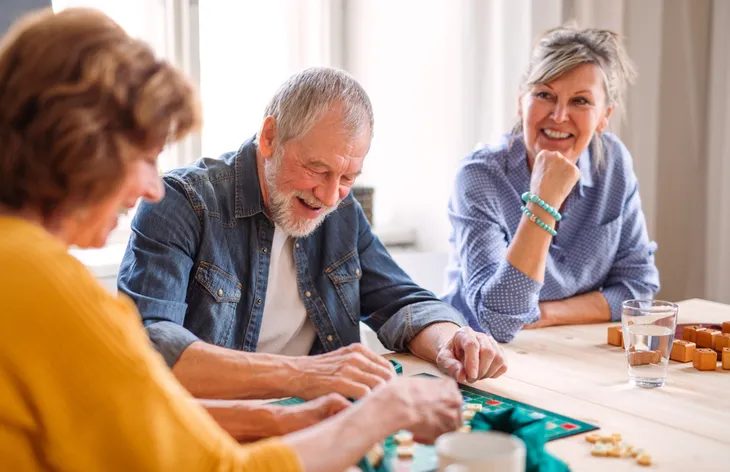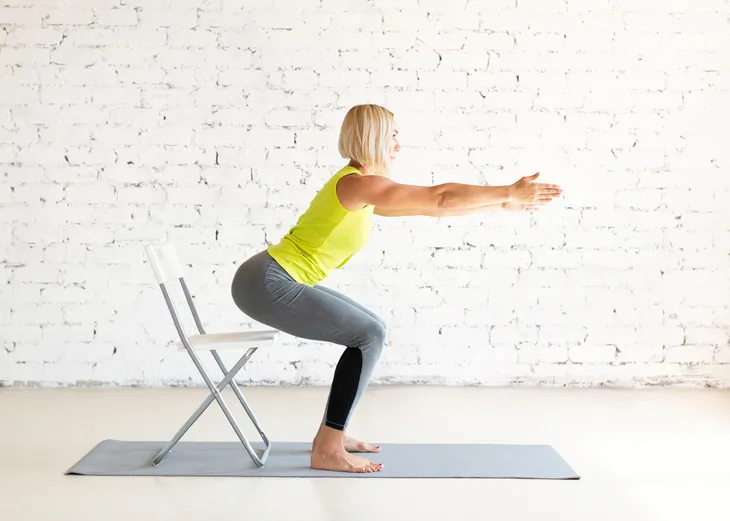- If you want to retain your youthfulness, then you’ll want to take care of both your mind and body.
- But you don’t need to make major changes to your everyday life to look and feel younger.
- For instance, small choices like taking the stairs instead of the elevator can make a big difference.
- Let’s look at 12 activities with anti-aging benefits, from bite-sized workouts to babysitting grandkids.
Anti-aging isn’t just about looking younger — it’s also about feeling younger. While there’s no such thing as a fountain of youth, there are plenty of activities you can do to keep your mind sharp and your body spry.
Fortunately, you don’t need to overhaul your entire lifestyle to prevent premature aging. Here are 12 activities with anti-aging benefits that you can incorporate into your everyday life.
Walk
Walking might seem basic, but it can have major benefits. In fact, “Walking is practically an insurance policy for aging well,” as personal trainer Karisa Karmali explains to Eat This, Not That! The source says research shows walking can help you live longer, strengthen your heart, and maintain healthy bones.
Additionally, the benefits extend beyond your physical well-being. For instance, the source says walking can help ward off depression and reduce the risk of dementia. So, how many steps should you strive for every day? The source says you don’t need to push yourself too hard — 4,000- to 5,000-steps can help.
Crossword and Word-Search Puzzles
Keeping your brain active is also key to staying young. And crossword and word-search puzzles are a fun way to do just that. They “stimulate your mind and exercise the basic skills you need everyday, allowing you to retain them longer as you grow older,” according to Inspire Education.
Furthermore, the source says crossword and word-search puzzles can help improve memory, awareness, perception, and other thinking skills. They may even help delay dementia. According to Verywell Health, studies suggest crossword and word-search puzzles can help slow cognitive decline.
Take the Stairs
When you have a choice between the stairs and the elevator, take the stairs. That seemingly small decision can pay off big. According to Longevity, Harvard Health found that taking the stairs is “twice as taxing as brisk walking and 50% more difficult than lifting weights.”
As a result, getting in the habit of taking the stairs can help in a few ways. For example, “even taking the stairs at a slow pace will help you burn calories three times faster than walking on a level surface,” according to the source. And it can help improve mental health by releasing endorphins.
iPhone or Android Games
You might think of game apps as something for kids, but they can have anti-aging benefits for adults. Some iPhone and Android apps are designed to give your brain a workout. In particular, Longevity suggests trying Lumosity. It’s a free brain-training app that puts your mind to the test with memory and problem-solving games.
CNN says other options include CogniFit Brain Fitness, Personal Zen, and Happify. They can help improve memory, manage stress, and even train your brain to be happier. Just power up your smartphone or tablet and explore the wide array of apps designed to help with anti-aging goals.
Commercial Break Exercises
If you dread long workouts, then you’ll be glad to hear that bite-sized workouts can make a difference. Bite-sized workouts, also called exercise snacks, are brief intervals of physical activity — for example, the length of a commercial break.
According to Shape, studies show that interrupting 30-minutes of sitting with 2-minutes of physical activity can help lower the risk of heart disease, obesity, and type 2 diabetes. You could do a few minutes of jumping jacks, squats, pushups, etc.
Board Games
Board games are another thing that can help keep your mind sharp. Inspire Education says board games “encourage you to plan, follow instructions and complete a task to reach a goal” — all while working and socializing with others.
Instead of putting the emphasis on winning or losing, the source suggests focusing on the process. Then, you can have a sense of accomplishment no matter the outcome. In addition to board games, chess, checkers, and card games can help.
Dance
If you think dancing is just something fun to do, then think again. “Studies show that dance provides multiple cognitive and physical health benefits,” according to The New York Times. The source even calls it “the kale of exercise.”
For instance, it references a study that shows dancing can improve balance. Since falls are a common cause of injury among older adults, dancing can be a valuable exercise. Another study shows dancing can improve cognitive function. The source suggests that’s because “dance demands sustained mental effort to master new steps.”
Babysit Grandkids
It turns out that spending time with your grandkids can do more than keep you young at heart. “According to a recent study,” the Cleveland Clinic says, “grandparents who help watch their grandkids or who provide support to others may actually live longer than other seniors.”
Babysitting can help in a few ways. For one thing, it often involves some level of physical activity. And it’s both socially and cognitively engaging. However, too much babysitting can have the opposite effect if it becomes a source of stress. So, it’s important to strike the right balance.
Counter Push-Ups
Counter push-ups are another at-home exercise with anti-aging benefits. Upper body strength tends to decrease with age, but you can take steps to turn that around without any exercise equipment — just a counter. While traditional push-ups are great, counter push-ups are an alternative that can be less intimidating.
To get started, brace your hands against a waist-high counter with your feet about 2- to 3-feet back. Straighten your spine and slowly lower yourself toward the countertop. Then, push yourself back up to the starting position. The next time you warm something up in the microwave, consider using the waiting time to get in a few counter push-ups.
Learn a Foreign Language
If you want to slow down the effects of aging, then keep learning. You could consider enrolling in classes at local colleges or community centers, but you don’t even need to leave home to learn new skills. For example, you can learn a foreign language with the help of an app on your smartphone or tablet.
Studies suggest that learning a new language “slows brain aging,” according to the BBC. The source says one study found that “learning a second language can have a positive effect on the brain, even if it is taken up in adulthood.” And it references another study that suggests being bilingual may help delay dementia.
Chair Squats
Lower body strength also tends to decrease as we get older, which can make things like getting out of cars challenging. But chair squats can help build and maintain leg muscles. Like traditional squats, chair squats target the hamstrings, hips, glutes, and quads. Chair squats simply provide some support.
Grab a chair to get started. Take a seat with your feet about shoulder-width apart in front of you. Then, lean forward and use your thigh muscles to rise up. You can also lift your arms for extra balance. Slowly lower yourself back down and gently tap the chair without sitting down. Greatist recommends completing 3-sets of 10-repetitions.
Mental Math
Since engaging your mind is so important for anti-aging, look for little opportunities to put your brain power to work in your everyday life. For example, dust off your math skills and start using mental math. After a bit of practice, you might find it’s faster than pulling out your smartphone to use a calculator.
The next time you eat at a restaurant, for instance, calculate the tip in your head. Insider has a straightforward strategy that might help: Let’s say your bill is $53.75. Round that up to $54 and double it to get $108. Then, move the decimal one place to the left. That comes to $10.80, which is about 20-percent of your original bill.

